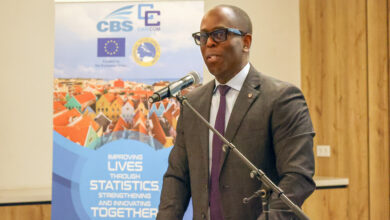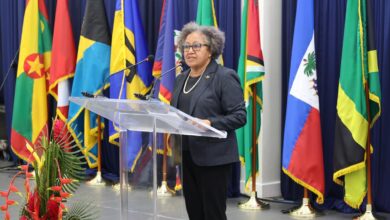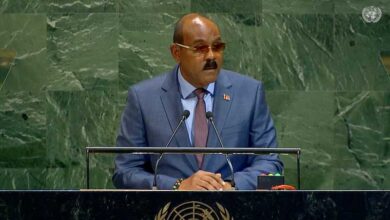KINGSTOWN, St. Vincent, Sept 17, CMC – The United States says it is working with the Eastern Caribbean countries to reduce their vulnerability and increase their resilience to the impact of climate change.
Jonathan Conly, the Mission Director for the United States Agency for International Development (USAID) in Barbados and the Eastern Caribbean, said that Washington is providing assistance to increase the capacity of technical and educational institutions in a number of areas.
He said under an agreement with the World Meteorological Organization and in collaboration with another agency, a regional climate center would be established for the Caribbean that would be “capable of providing …climate weather services to support adaptation and enhance disaster risk reduction region wide”.
He said the center would improve climate weather data collection regionally “to fill critically information monitoring and forecasting gaps that will allow us to better understand and predict climate impacts,” he told the Fourth Climate Change seminar organized by the St. Lucia-based Organisation of Eastern Caribbean States (OECS) Commission.
During his address Conly said the declining availability of fresh water on the Grenadine island of Bequia is a matter of grave concern for USAID.
He said “one of the threats from climate change has been identified as the declining availability of fresh water resulting from increased drought and saltwater intrusion due to sea level rise” and that USAID is funding a project to increase the water storage capacity for the reverse osmosis plant on Bequia and installation of distribution lines to facilitate access to and store clean water.
There are approximately 4,300 people living on Bequia.
On mainland St. Vincent Conly said that the focus is on water harvesting systems at six designated disaster shelters. He said this will help to minimise the adverse impacts of water shortages during climatic events such as droughts. This initiative is expected to be completed early next year.
“We know that despite significant investments in disaster risk reduction and response there is much that remains to be done,” Conly said.
“We see a growing need to rebuild damaged infrastructure with resilient structures through coordination across agencies and to better educate Caribbean citizens about climate change.”
He said the long term sustainable of the Caribbean region is of vital interest to the United States both economically and environmentally and that as close neighbours and regional partners, Washington has a vested interest in contributing to a prosperous, stable and climate resilient future where the people and countries of the Caribbean continue to flourish.





